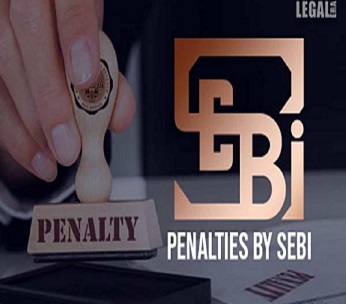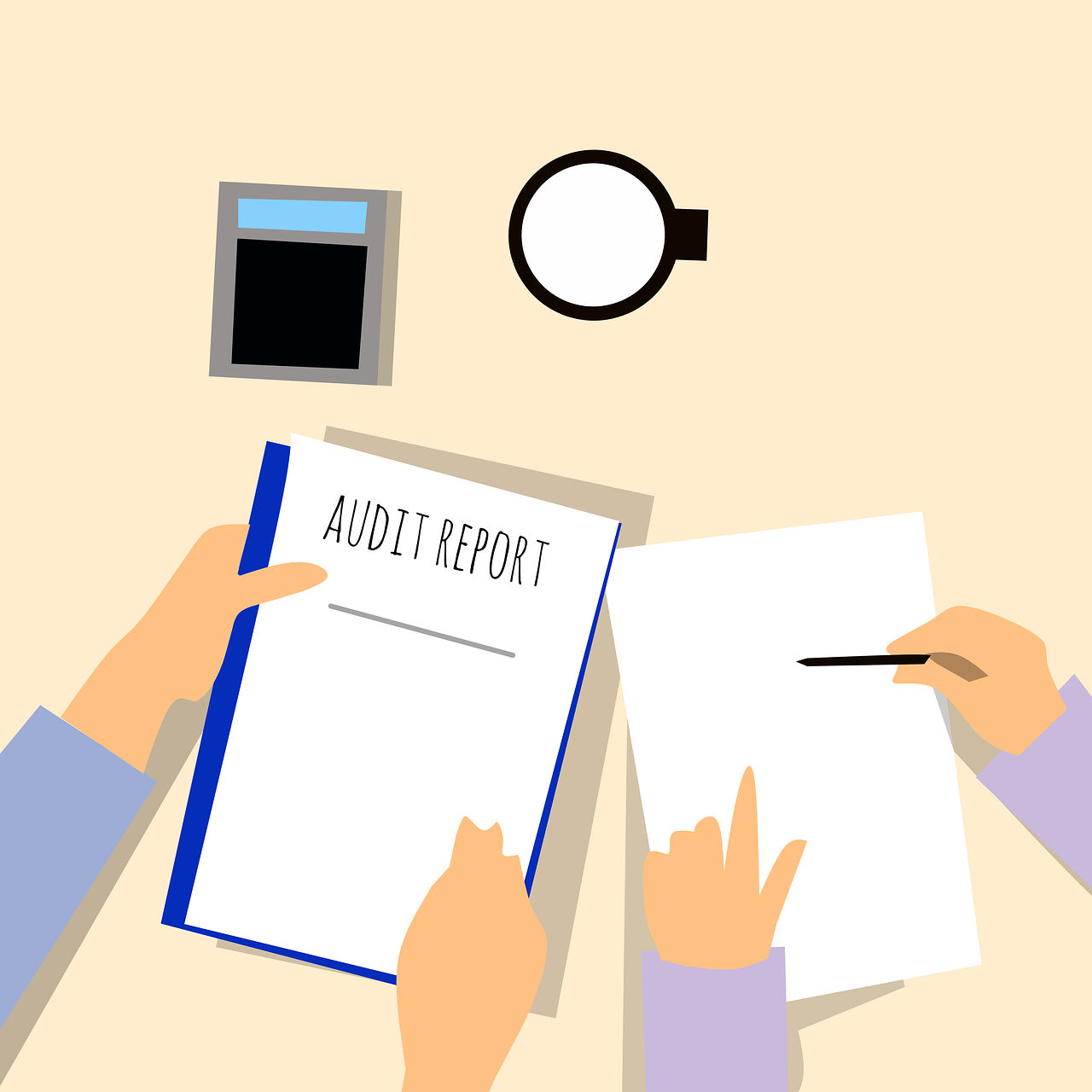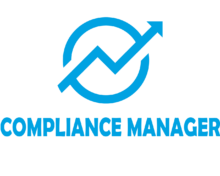Blogs
Based on the strong submissions made by us against the Show cause Notice issued by the SEBI; SEBI has considered our contentions and passed the Order, highlights of which are mentioned below:
- SEBI has set aside the allegations imposed under PFUTP Regulations, 2003;
- No cancellation/ suspension of the certificate of registration
- Monetary penalty of just Rs.5 lakhs;
- No refund for the unregistered activity carried out.
Further, following things shall be kept in mind by the registered Investment Advisers:
- If there is any slight change in the information previously submitted to the SEBI at the time of the Registration, then they must inform to the SEBI;
- Proper disclosures shall be made upon the Website;
- They shall take the fees payment from the clients in their own Bank accounts only;
- They shall not offer any free trial services to any of their clients.
If you require any help in the SEBI / SAT related matters, you can get in touch with us for a right solution!!
- Published on 22nd November, 2022

SEBI has came up with a new Master Circular for SCORES Platform and rescinding all the earlier circulars/directions issued by SEBI till date on the said subject matter.
Highlights of the said SEBI SCORES Master Circular is as mentioned below:
👉🏻 It is now mandatory for investors to first take up their grievances for redressal with the entity concerned, and then approach the SEBI;
👉🏻 Direct Complaints received on the SCORES Portal will not be intervened by the SEBI, but it has to be resolved within 30 days;
👉🏻 The complaint shall be lodged on SCORES within one year from the date of cause of action earlier it was 3 years;
👉🏻 Investors can opt for One-time ‘Review’ option, with 15 days of the resolution, if they are not satisfied with the resolution provided;
👉🏻 Failure to obtain the SCORES user ID and password would not only be deemed as non-redressal of investor grievances but also be deemed to be wilful avoidance of the same by such entity;
👉🏻 Also, the failure to file ATR on SCORES within the stipulated timelines shall not only be treated as failure to furnish information to SEBI but shall also be deemed to constitute non-redressal of investor grievance.
If you need any help in compliances then you can get in touch with us for a right solution!!
- Published on 08th November, 2022.

Based on the strong submissions made by us against the Interim Order passed by the SEBI dated September 14, 2021; SEBI has considered our contentions and passed the Final Order, highlights of which are mentioned below:
- No penalty is being imposed by the SEBI;
- SEBI has set aside the violations imposed under PFUTP Regulations, 2003 & SEBI Act, 1992;
- Frozen Bank Accounts & Assets were ordered to be released
SEBI has further accepted our contentions on the ‘Policy for Risk profiling & Suitability Assessment‘ and ‘displaying of accuracy on website is just a marketing gimmick‘.
If you require any help in the SEBI / SAT related matters, you can get in touch with us for a right solution!!
- Published on 08th February 2022

Appeal was filed against the SEBI Adjudication order in Securities Appellate Tribunal (“SAT”) and got the penalty reduced by 88% from Rs.7 lakh to just Rs.1 lakh.
Highlights of the said Order:
- Removal of violations under PFUTP Regulations
- Reduction in penalty
- No impose of any kind suspension or ban from the securities market.
If you require any help in the SEBI / SAT related matters, you can get in touch with us for a right solution!!
- Published on 4th January, 2022

Accredited Investor is not a new concept, jurisdictions such as the USA, EU already have the concept of Accredited Investor.
Accredited Investors are a class of investors who have an understanding of various financial products and the risks- returns associated with them and therefore, are able to make informed decisions regarding their investments.
Accredited Investors are considered to be capable of dealing in relatively riskier investment products due to their financial capacity and ability to absorb possible financial losses.
SEBI came out with a Consultation Paper on February 24, 2021, to seek public comments on a draft framework for Accredited Investors.
Accredited Investor has been rolled out in India through AIF Regulations, PMS Regulations, and IA Regulations.
For registration as Accredited Investor, an application needs to be filed with BASL along with supporting documents as may be specified from time to time.
Eligibility for Accredited Investors
Individuals, HUFs, Family Trusts, and sole proprietorships, which meet the criteria as under:
(i) Annual Income >= INR 2 Crore;
OR
(ii) Net Worth >= INR 7.5 Crore, out of which at least INR 3.75 Crore is in the form of financial assets;
OR
(iii) Annual Income >= INR 1 Crore+ Net Worth >= INR 5 Crore, out of which at least INR 2.5 Crore is in the form of financial assets;
Partnership Firms set up under the Indian Partnership Act, 1932 in which each partner independently meets the Accredited Investor criteria for individuals.
Trusts (other than family trusts) Assets under Management greater than or equal to INR 50 Crore.
Body Corporates with a net worth greater than or equal to INR 50 Crore.
Benefits of Accredited Investor to SEBI RIA
In case the client of the Investment Adviser is an Accredited Investor, limits and modes of fees payable to the Investment Adviser may be governed in its entirety through bilaterally negotiated contractual terms between the Accredited Investor and the Investment Adviser.
In case of any query feel free to contact us.
- Published on 22nd December 2021

SEBI has issued circular dated 13th December 2021 for Investment Advisers and Research Analyst which specifies for the Investor Charter and enhanced Complaint display on website.
The Circular further provides for:
- SEBI SCORES Portal link display
- Audit
- Do’s & Don’ts for Investors
- Procedure of onboarding of clients
- Disclosure through mail to clients
If you need any assistance or help, please refer the link below:
Note: You will get the call back within 30 minutes of successful payment.
- Published on 14th December 2021

SEBI has specified that as per the Regulation 14 of the Investment Advisers Regulations, 2013, an entity granted recognition under the aforesaid Regulation shall be designated as “Investment Adviser Administration and Supervisory Body” (“IAASB”) and shall be entrusted with the administration and supervision of IAs.
SEBI has granted recognition as IAASB to BSE Administration & Supervision Limited (BASL), a wholly owned subsidiary of BSE Limited, for a period of three years from June 01, 2021.
All the existing IAs in order to keep their registration in force shall seek membership of IAASB within 3 months from the recognition i.e. by 31st August, 2021.
All the registered IAs shall be required to submit periodic reports to IAASB.
IAASB shall be having following responsibilities:
i. Supervision of IAs including both on-site and offsite
ii. Grievance redressal of clients and IAs
iii. Administrative action including issuing warning and referring to SEBI for enforcement action
iv. Monitoring activities of IAs by obtaining periodical reports
v. Submission of periodical reports to SEBI
vi. Maintenance of database of IAs
Further, SEBI would still continue to concurrently administer and supervise all registered IAs.
- Published on 18th June, 2021

Bombay Stock Exchange (“BSE”) vide its Media Release on 11th June, 2021 said that it has set up a wholly owned subsidiary company “BSE Administration & Supervision Ltd.” (BASL) for carrying out the administration and supervision activities of all SEBI-registered investment advisors (RIA).
It has also created its website: https://www.bseasl.com/ria/index.html, wherein all the data/information related to Investment Advisers will be updated from time to time.
All existing SEBI registered IAs and new applicants desirous of obtaining registration as Investment Advisor will be required to register with BASL as a member. The administration and supervision of BASL members will be accordance with SEBI Regulations and circulars, and Byelaws and circulars / guidelines issued by BASL from time to time.
This has come in purview of the SEBI Circular No.: SEBI/HO/IMD/DF1/CIR/P/2020/148, titled “Administration and Supervision of Investment Advisers” dated August 06, 2020, wherein it stated that: it is decided to recognize a wholly-owned subsidiary of the stock exchange (stock exchange subsidiary) to administer and supervise IAs registered with SEBI.
The SEBI gave the following responsibilities:
- Supervision of IAs including both on-site and offsite
- Grievance redressal of clients and IAs
- Administrative action including issuing warning and referring to SEBI for enforcement action
- Monitoring activities of IAs by obtaining periodical reports
- Submission of periodical reports to SEBI
- Maintenance of database of IAs
In case of any query related to the Circular or SEBI Compliances, please feel free to contact us on: 6264699173 / 9179624120. You can also write us on: info@compliancemanager.co.in ; info.compliancemanager@gmail.com or WhatsApp on: https://wa.me/918989281794.
Website: https://compliancemanager.co.in/.
- Published on 12th June, 2021.

Securities and Exchange Board of India (SEBI) in its recent Circular for Investment Advisers dated 23rd September, 2020 titled “Guidelines for Investment Advisers” stated that, as per Regulation 19 (3) of the amended Investment Adviser Regulations, Investment Advisers shall ensure that Annual Audit in respect of compliance of SEBI (Investment Advisers) Regulations, 2013 and circulars issued thereunder shall be conducted.
Further, it was also stated that the said Compliance Audit shall be completed within six months from the end of each financial year i.e. by 30th September, 2020.
SEBI in the said Circular also stated that if there are any adverse findings in the Compliance Audit, then the same shall be reported to the respective SEBI office along with the Action Taken Report duly approved by the individual IA/management of the non-individual IA, within a period of one month from the date of the Audit Report but not later than October 31st of each year for the previous financial year starting with the financial year ending March 31, 2021.
- Published on 05th June, 2021.

After the notification of the SEBI Investment Adviser (Amendment) Regulations, 2020 on 3rd July, 2020, the Association of Mutual Funds in India (“AMFI”) has issued guidance regarding nomenclature to be used by Registered Mutual Fund Distributor.
As per the said Regulations, no distributor shall use the nomenclature “Independent Financial Adviser or IFA or Wealth Adviser or any other similar name”.
Since, there was lot of confusion regarding ‘similar name’, so AMFI has come up with the list of names which are permissible and not permissible.
So, the existing mutual fund distributor who have similar names shall apply for changing its name before 31st October, 2020 as the AMFI has extended the timeline for changing the name from 15th October, 2020 to 31st October, 2020.
- Published on 21st October, 2020

So, finally a long wait is over as SEBI has come out with the Circular just a Week before the applicability of the new regulations. A Circular was expected from SEBI since the notification of new IA Regulations on 3rd July, 2020 to provide clarifications on certain points. Hence, SEBI has issued the Circular No. SEBI/HO/IMD/DF1/CIR/P/2020/182 dated September 23, 2020 titled “Guidelines for Investment Advisers”.
So, below is the summary of the provisions of the Circular:
- Published on 25th September, 2020

We have been receiving multiple questions related to Compliance audit requirement by SEBI Registered Research Analysts. Based on that we have attempted to capture some of the common questions.
1. What is Compliance Audit?
Basically Compliance Audit is checking of the compliances followed by the Research Analysts as stated under SEBI (Research Analysts) Regulations, 2014.
2. Is it different from Annual Accounts Audit/Tax Audit done by CA?
Yes, it is way different from annual accounts audit or tax audit which is done by a Chartered Accountant. In accounts/tax audit the financials of the Organisation is checked whereas in Compliance Audit, compliances of the SEBI Act and Regulations are being checked such as correspondences with clients, disclosures in research report, policies and procedures established by you, trading activities of you and your employees, records to be maintained by Research Analyst, etc.
- Published on 5th July, 2020

Earlier this year SEBI has issued the Consultation Paper on 16th January, 2020 seeking public comments on the proposed changes. Post this, in February, 2020 SEBI in its Board Meeting approved certain changes to it. Now on 3rd July, 2020 SEBI has notified amendments to SEBI (Investment Adviser) Regulations, 2013 to further strengthen the regulatory framework for investment advisers. These will be effective on 90th day from the date of its Publication in Official Gazette.
This Article discusses the impact of the provisions of the SEBI (Investment Advisers) (Amendment) Regulations, 2020 and is prepared with a view to give an overview of the Regulation wise amendments as mentioned in the Amended Regulations, 2020.
- Published on 5th July, 2020

Many people associated with the market have queries or are unaware regarding Risk Profiling including certain Investment Advisers. The Regulations for Investment Advisers clearly states that an Investment Adviser has to ensure that it carries out Risk Profiling of the investors in a systematic manner.
Further, a few months ago, SEBI came out with the Circular on December 27, 2019 titled “Measures to strengthen the conduct of Investment Advisers”, with an objective to strengthen the conduct of Investment Advisers, and to protect the interest of investors.
The Circular amongst other things it focused on proper risk profiling of clients by the Investment Advisers.
- Published on 16th June, 2020

We have been receiving multiple questions related to Compliance audit requirement by SEBI Registered Investment Adviser. Based on that we have attempted to capture some of the common questions.
Q 1. What is Compliance Audit?
Ans: Basically Compliance Audit is checking of the compliances followed by the Investment Advisers as stated under SEBI (Investment Advisers) Regulations, 2013.
Q 2. Is it different from Annual Accounts Audit/Tax Audit done by CA?
Ans: Yes, it is way different from annual accounts audit or tax audit which is done by a Chartered Accountant. In accounts/tax audit the financials of the Organisation is checked whereas in Compliance Audit, compliances of the SEBI Act and Regulations are being checked such as KYC, Risk Profiling, Suitability Assessment of clients, Client agreements, records to be maintained by Investment Adviser, policies, procedures related to daily conduct of the Investment Adviser, etc.
- Published on 30th April, 2020

It has come with a view to strengthen the conduct of Investment Advisers and stop the ill/fraudulent activities and to protect interest of investors seeking their advice.
The investment advisers (IAs) were providing advice on a free trial basis without considering risk profile of the client. The Circular restricts SEBI Registered Investment Advisors (RIAs) from giving free trials of their services to customers or accepting part payments for their services.
Now the investment advisers can provide investment advice only after completing risk profile of the client based on information provided by them and need to obtain consent of the client on completed risk profile either through registered email or physical document.
Furthermore, the IAs must display complaints against them on their own websites and can only accept payments through banking channels.
- Published on 27th December, 2019

